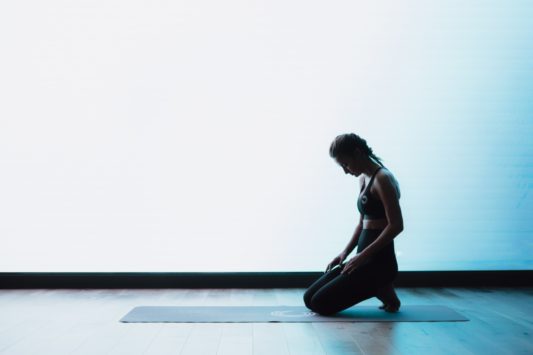Taking care of your mental health is just as important as any physical fitness. Being active can have a profoundly positive impact on your general wellbeing – so here are some tips to keep you moving in the right direction.
Most of us already know the many physical benefits of exercise. Some of which includes weight loss, increased energy, better sleep, and a reduction in the risk of a number of illnesses. On top of that, regular exercise can boost overall mood and support your general wellbeing. Taking care of your mental health is an equally important part of maintaining your health from day to day. More of us struggle with it than you might think. According to the mental health charity Mind, 1 in 4 people in the UK experience some type of mental health issue each year. In any given week, 1 in 6 people report experiencing a common mental health issue such as anxiety or depression.
The importance of physical activity in keeping our mind and body at its best is well understood. While it’s true that there are no quick and easy solutions to these issues, there are a few things you can do to give a little extra support to your mind, body and soul.
5 Ways to Work on Your Mental Wellbeing
Exercise
It’s a cliché, but it’s true: regular physical activity can make a positive impact on your mood and stress levels. Just 20 minutes of daily exercise can encourage your brain to increase production of endorphins, feel-good neurotransmitters that regulate your mood and brain function. On top of that, a regular routine gives you milestones to focus on in the future, and a way to measure your progress from week to week.
Quality Time
It’s safe to spend time with your friends, family and loved ones now, so make sure you do. With a wealth of outdoor activities to choose from, there’s never been a better time to organise a group outing to a botanical garden or outdoor mini golf game and see some friendly faces. Sure beats another Zoom call, anyway.
Meditation and Mindfulness
If you’re new to meditation, there are a number of apps you can try to get started, like Headspace and Calm. They usually come with a free trial period, so there’s no harm in giving them a shot while you explore. They’re dedicated to specific areas such as concentration, dealing with stress, coping with sadness and more.
Balanced Meal, Balanced Mind
A healthy, varied diet is naturally good for your physical health, but nutrition is just as important when it comes to mental health. Vegetables, fruits, legumes, fish, cereals and nuts all contain vitamins, minerals and other nutrients that support your brain’s normal cognitive function. On top of that, why not supplement your diet with cognitive support supplements such as Complete Multivitamin Complex™, one of our Omega 3 fatty acid supplements, or even some Vitamin D?
Sleep quality
No matter how much sleep you get, you probably need more. The average adult requires 8 hours of sleep a night to stay healthy, and sleep quality directly affects your mood and stress levels. Try moving your cardio workouts to the evening, avoid bright screens and digital devices before bedtime. You could even try Complete Zen™, our nootropic supplement designed for anyone who needs a moment of calm during their stressful lifestyle.
Mental Health Help
If you’d like to learn more about Mental Health Awareness Week, or just want to learn more on the topic in general, visit the World Health Organisation website. And if you feel like you’re going through a rough time or simply feeling blue and want to speak with a specialist, here’s a list of UK charities that can offer the support you need.
Let us know how you’ll be embracing kindness and looking after your mental health this Mental Health Awareness Week by tagging #TeamBulk and @bulk in your social media posts. We want to hear your tips and strategies! If they work for you, they might work for someone else.















